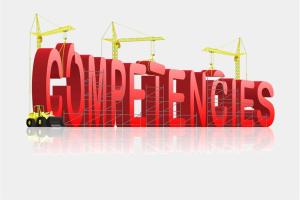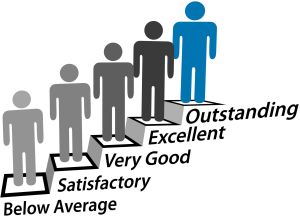This blog is written to aid both managers when recruiting and appraising staff and for consultants in the recruitment industry, so that they can determine their own level of competence in what they do.
This is the 9th post in a series of twelve. For the links to previous competencies that I’ve already covered, please find them at the end.
9. Development of Others
It doesn’t matter what role you’re developing someone for, there are some basic principles that make it a much more enjoyable experience for all. Last week’s post was about ‘Team Priorities‘ and that is very relevant to this topic. Making sure that everyone is working to their best ability and is working towards achieving the goals and aspirations of the company as a whole as well as the individuals within it, makes for a great place to work – believe me, I’ve worked at such places.
This isn’t just down to the manager (or the Training Consultant if you’re lucky enough to have one in your company), but the responsibility of everyone. After completing their probationary appraisal, one of the great opportunities for discussion is to focus on their strengths and how the rest of the team could benefit from their skills and knowledge. Everyone has something to contribute.
3 Simple Principles
1. Many successful people can’t always understand when they are developing other at to why they “just don’t get it!” Remember that other people do not learn at the same rate, or in the same way as you do.
2. “Nine times the message”. This is a phrase that has stuck with me throughout my 27 years of training others… it can take 9 times for it to sink it, when someone is learning something new. So, just because “I’ve already told you twice”, don’t expect that to be enough.
3. Tell, Show, Do, Review. A very simple adage when creating a training plan. By explaining what they are going to do, then showing them exactly what you expect in terms of quality and activity, then letting them have a go themselves before you review it, you can quickly give someone the confidence to tackle something new. This process also helps in covering 4 out of the ‘9 times above’ and with two more opportunities to ‘Do, Review’ to make sure that they’ve got it, then you can quite quickly help someone to understand something new.
Purpose: – The purpose for a recruitment consultant when developing others is to prepare for a training / coaching session after having established the business need. Then, to deliver it in an appropriate fashion for the individual concerned.
1. Tell me about a time when you have had the responsibility of training someone;
- How did you identify that they needed training?
- What were the steps that you took before the training session?
- How did you let the person know that they needed training?
2. Describe a training session that you have designed and delivered;
- What preparation did you do?
- How did you decide on the content?
- How did you measure the success of your training?
3. In what way would you describe your training / coaching style?
- How do you like to deliver training or coaching sessions?
- In what way do you adjust your style?
- Why would you consciously change your style?
High level of competence shown: –
- Encourages others to take responsibility for their own development
- Ensures that the training is directly related to the needs of the business
- Recognises that ongoing development of the individual is important
Each week I’m tackling a new competency and I will follow the same format of purpose, questions and three examples of what a high level of that competency would look like.
For the original post with a snapshot of all of the competencies, click here – The Key Competencies of a Recruitment Consultant.
- The Competencies of a Recruitment Consultant – Planning
- The Competencies of a Recruitment Consultant – Monitoring
- The Competencies of a Recruitment Consultant – Analysing
- The Competencies of a Recruitment Consultant – Sales opportunities
- The Competencies of a Recruitment Consultant – Meeting Goals
- The Competencies of a Recruitment Consultant – Building Profitability
- The Competencies of a Recruitment Consultant – Communication
- The Competencies of a Recruitment Consultant – Team Priorities
Angela Cripps, Connemara UK










